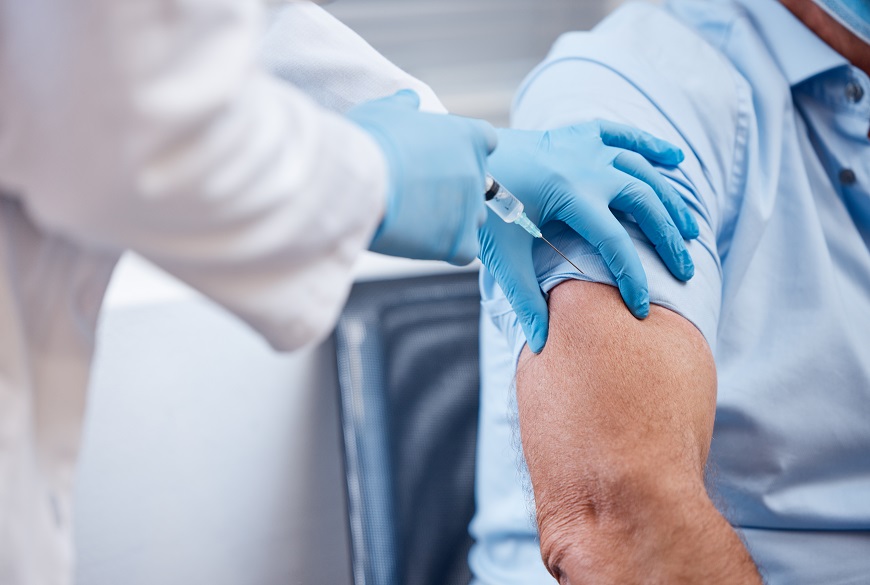Tirzepatide Shows Efficacy Resolving Metabolic Dysfunction-Associated Steatohepatitis without Worsening of Fibrosis

GIP receptor and GLP-1 receptor agonist tirzepatide demonstrates superiorty to placebo in MASH resolution in patients with with stage 2 or 3 fibrosis.
Eli Lilly’s tirzepatide showed superiority to placebo in resolving biopsy-proven metabolic dysfunction-associated steatohepatitis (MASH) with no worsening of fibrosis on liver histology in patients with stage 2 or 3 fibrosis, according to results from the Phase II SYNERGY-NASH trial (NCT04166773). Tirzepatide, a once-weekly glucose-dependent insulinotropic polypeptide (GIP) receptor and glucagon-like peptide-1 (GLP-1) receptor agonist, has previously been approved under the brand names Mounjaro and Zepbound for the treatment of type 2 diabetes and weight loss.
"MASH is the second most common contributor to liver transplantation in the US, highlighting the need for novel therapies," said Rohit Loomba, MD, MHSc, chief of the division of gastroenterology and hepatology at University of California San Diego School of Medicine, in a press release. "The study is significant, given the urgent need for treatment options that are capable of slowing the progression of the disease and potentially reducing serious health complications."
GLP-1 and GIP are classified as incretins, which are expressed throughout the body, in areas such as pancreatic beta cells and the gastrointestinal tract. GLP-1 and GIP have been found to increase insulin from beta cells and glucose uptake by muscles while lowering blood glucose. GLP-1 stimulates glucose-dependent reduction of glucagon from alpha cells, lowering glucose production from the liver, and reducing blood glucose. In addition to MASH, tirzepatide is also currently under evaluation for the treatment of patients with obesity and/or overweight with heart failure with preserved ejection fraction; obstructive sleep apnea; chronic kidney disease; and for morbidity and mortality in obesity.
The multicenter, double-blind, randomized, placebo-controlled SYNERGY-NASH trial is analyzing the efficacy and safety of tirzepatide at doses of 5 mg, 10 mg, and 15 mg in adult patients with biopsy-confirmed MASH with stage 2 or 3 fibrosis. Investigators randomly assigned 190 patients to subcutaneous administration of tirzepatide 5 mg, 10 mg, or 15 mg, in comparison to placebo for 52 weeks. The trial’s primary endpoint was MASH resolution without worsening of fibrosis at 52 weeks with secondary endpoints that include fibrosis improvement without worsening of MASH.
The results show that 51.8% of patients administered tirzepatide 5 mg, 62.8% of patients administered 10 mg, and 73.3% of patients administered 15 mg, achieved an absence of MASH with no worsening of fibrosis on liver histology vs. 13.2% of patients administered placebo after 52 weeks. For the secondary endpoint of fibrosis improvement without worsening of MASH, 59.1% of patients administered tirzepatide 5 mg, 53.3% of patients administered 10 mg, and 54.2% of patients administered 15 mg achieved a fibrosis improvement of one-stage or greater without worsening of MASH vs. 32.8% of those administered placebo.
Further, tirzepatide was linked to improved body weight, blood markers of liver injury, and biomarkers of liver fat, inflammation, and fibrosis, according to the investigators. They added that the trial was not designed to show improved fibrosis with the drug; however, these results show the potential for clinically meaningful improvements across all doses.
In terms of safety, findings for tirzepatide were similar to what has previously been reported in the SURMOUNT and SURPASS trials, with no new safety signals reported. The most common adverse events in the trial were nausea, diarrhea, decreased appetite, constipation, and weight loss, which were generally mild to moderate in severity, according to the investigators.
"Lilly is very pleased with the degree of MASH resolution observed in the SYNERGY-NASH study, and we are encouraged by the improvement of fibrosis observed," Jeff Emmick, MD, PhD, senior vice president, product development, Lilly, said in the release. "MASH is expected to impact more than 19 million adults in the U.S. by 20392 and based on the study results, we believe tirzepatide may have the potential to help people living with this disease."
Read the original article and find the references here.
For more news from the world of long-acting therapeutics, sign up to the CELT's LONGEVITY mailing list here for regular updates.